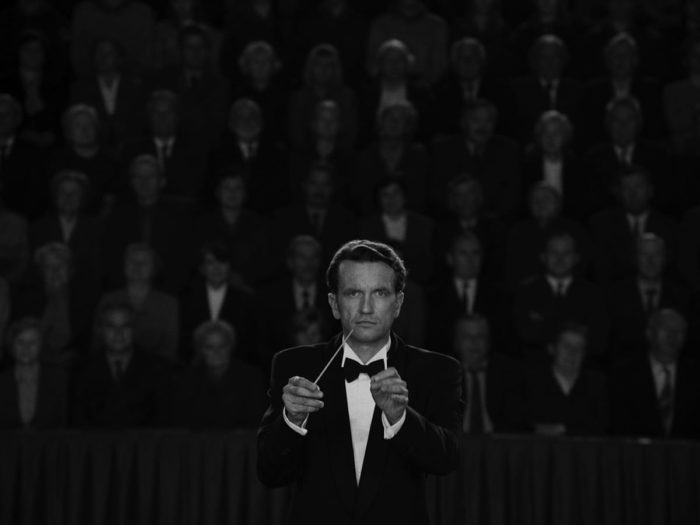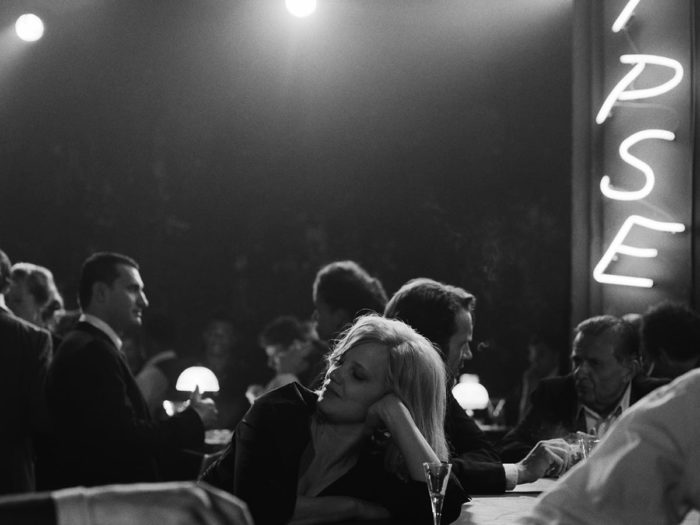
As we close out this year’s Criterion Month, it seems that we’ve hit upon a theme that all of our last few movies share. Namely, we’ve been reviewing a lot of movies about relationships spread out over a long period of time, which allows us to see the ways in which time and the growth of these characters impacts their relationships. This is quite a literal aspect of the Before trilogy, as we see how the actors/writers’ experiences with love and the passage of time influenced the series. However, Love & Basketball, The Worst Person In The World, and today’s entry Cold War, also explore this same idea, as we see the ways in which people fall in love over the years, then out of love, and then re-enter each other’s lives in one way or another.
Cold War begins in post-World War II Poland, where a musician named Wiktor (Tomasz Kot) is holding auditions for a state-run music program in the hopes of performing old Polish folk songs as a way of preserving them. A young woman that tries out for the group is Zula (Joanna Kulig), who has an heir of mystery to her since she seems to be faking her peasant upbringing and reportedly killed her father when he tried to assault her. After the troupe’s first performance, Zula and Wiktor end up having sex, while their relationship seems to remain somewhat undefined afterwards, possible because Wiktor is already in a relationship with one of the other musical directors. Due to the group being ensnared in the politics of the Soviet era, Wiktor decides to escape East Berlin, where they’ve ended up living, though Zula doesn’t follow him.
We then cut to years later in Paris, where Wiktor is working as a pianist in a jazz club. Zula encounters him there, but they’re both now seeing other people, though clearly still have some sort of spark with each other. We then see them crossing paths a few more times throughout the next couple of years, before Zula drops in on Wiktor conducting a film score for a movie. Zula has married another man so that she could get a visa to live in France in the hopes of getting closer to Wiktor. The two of them then end up working on recording an album together with the hopes of launching Zula’s singing career, but with all of their baggage of past lovers and dashed romance, their relationship continues to be tumultuous. We then cut to about five years later, where Wiktor has returned to Poland but has been sentenced to a work camp for defecting. Zula eventually gets him out, and they finally marry under — I’ll just say — calmly tragic circumstances.
After the final shot of the movie, the credits read “for my parents”, which reinforces that this is a story very much inspired by director Paweł Pawlikowski’s parents and their on-again-off-again relationship that resulted in them having one child. It absolutely makes sense, since there is something a bit odd about seeing a story set in the mid-20th century that isn’t based on a book or important historical figures. But instead, you get a love story that the director clearly has some personal attachment to, and yet was able to tell this story with hardly any trace of sentimentality.
Which to be honest, left me feeling a bit… cold (sorry). I never felt that invested in Wiktor and Zula’s relationship, even though I could grasp how much it was charged by the fact that they often logistically were not able to be with each other. But the movie is pretty scant on character backstory or building on who these people are, while their circumstances seem to be the main thing we have to latch onto. That said, I did appreciate how succinct and fleet-footed the movie was in terms of how it covers nearly 20 years of European history and does it in all under 90 minutes. I’m just a little torn if my admiration for how concise the movie is in telling an epic story is able to overcome the fact that it also leaves me feeling like some things are missing. Maybe not quite.
What I really can’t take any issue with is the gorgeous look of the film. Pawlikowski established an affinity for black and white cinematography in a standard aspect ratio in 2013’s Ida, and the look of this film is even moodier and more striking. Pretty much every shot of this movie is a joy to look at, even if it is in a kind of stark, grim way. And it’s another reason why this movie was absolutely worth watching even when the romance didn’t quite resonate with me.
Anyways, guess that’s it for me on this Criterion Month. Really glad we do these since I always see a bunch of great stuff that I might have put off seeing in perpetuity otherwise. But much like this film, I don’t need to overstay my welcome, so see you next year!


